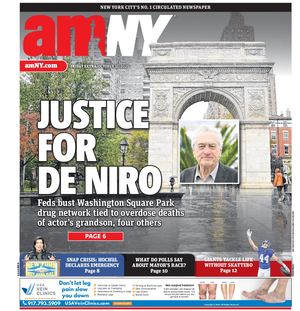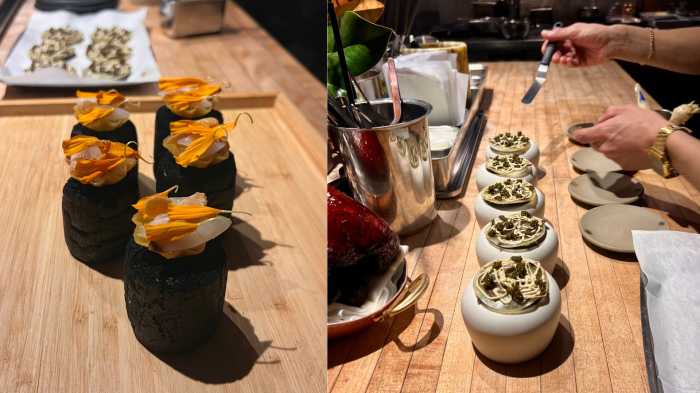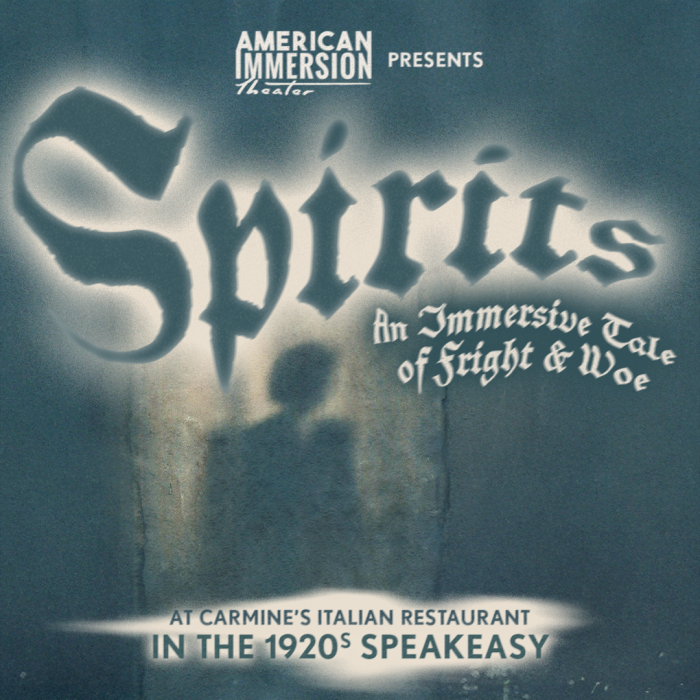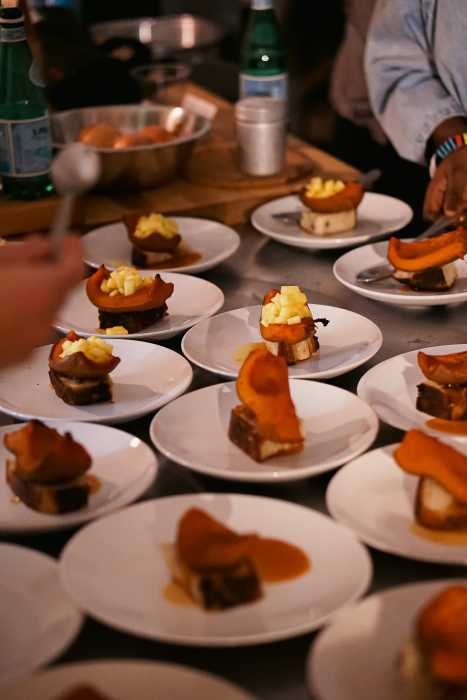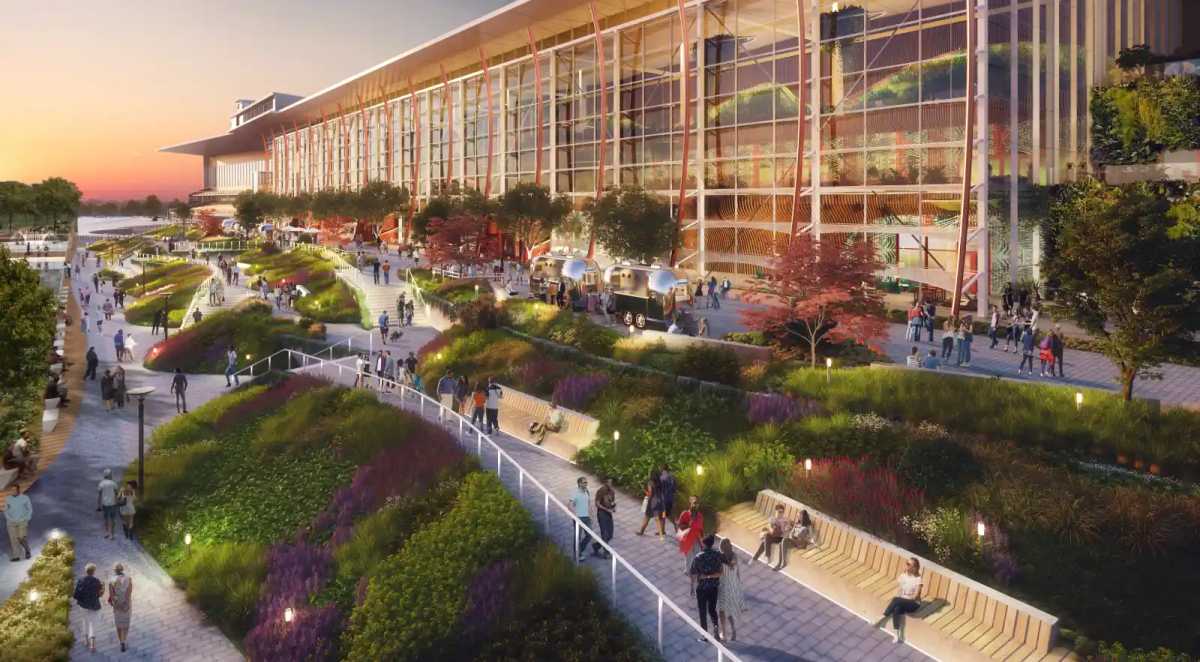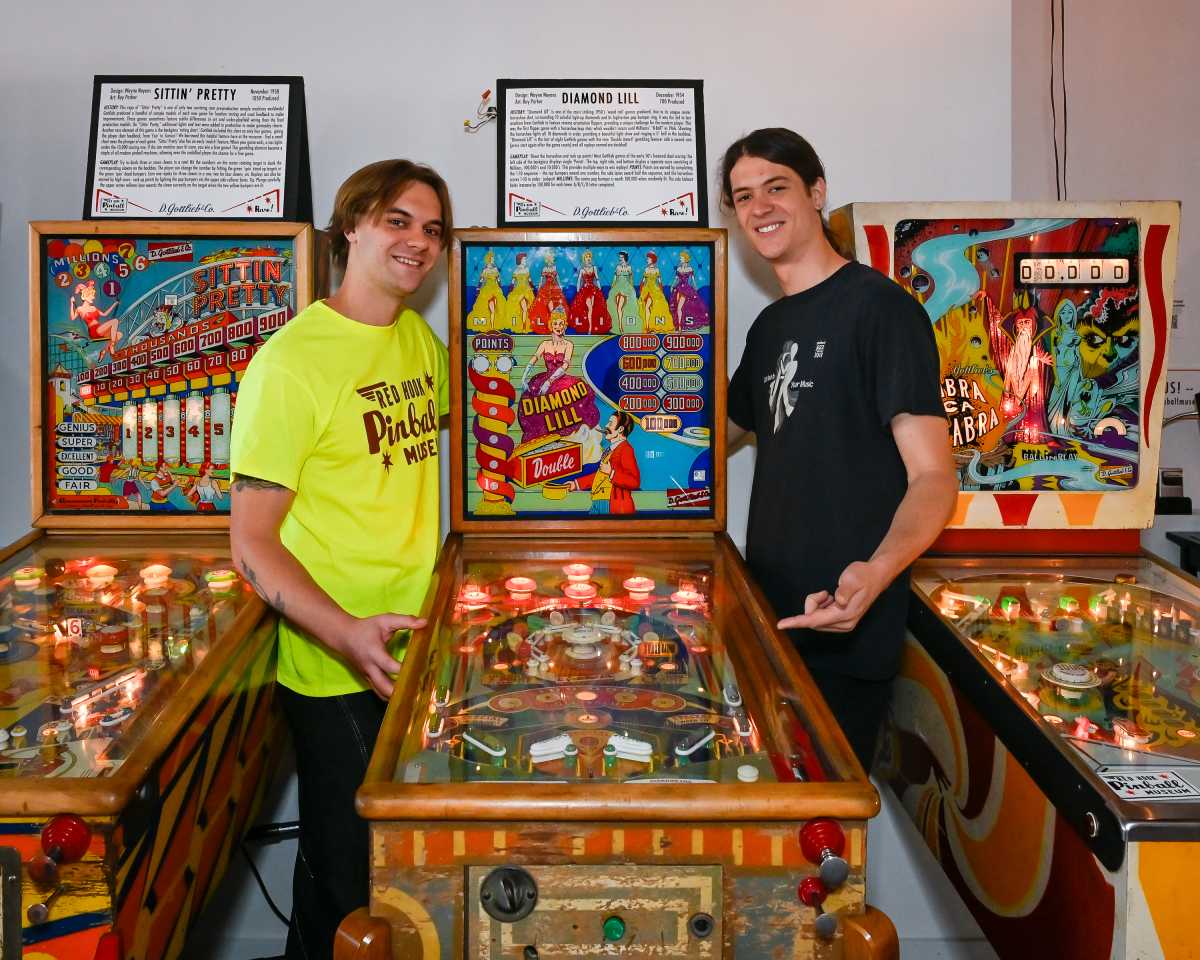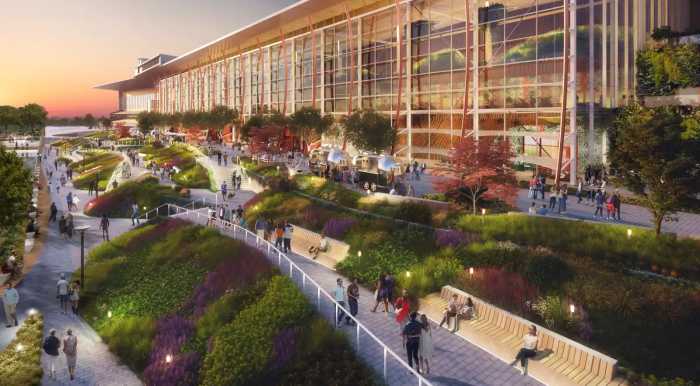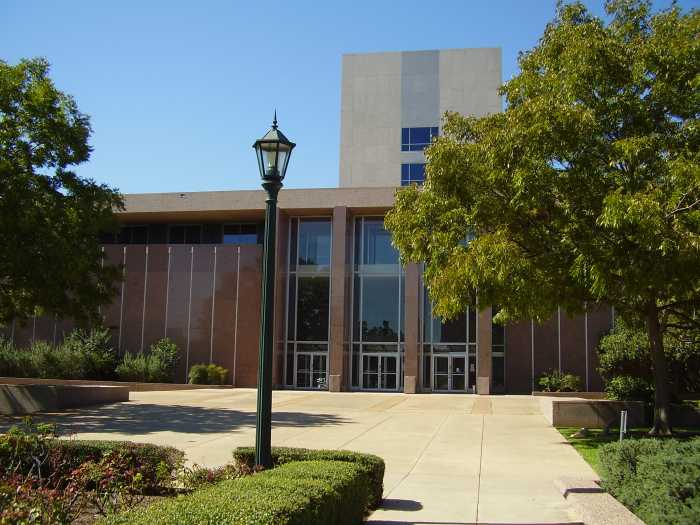
Long Island City is hop-pening.
Over the past five years, the Queens neighborhood has quickly become a brewing hub, with nearly a half-dozen craft breweries calling LIC home.
The newest to settle in the neighborhood is Fifth Hammer Brewing Co. Co-founded by brewer/musician Chris Cuzme and David Scharfstein, a former commercial litigation attorney, the brewery just started producing beer from its 15-barrel system, and its taproom is slated to open the first weekend of October, where you can find session IPAs like the No Egrets (“It’s like [a beer] that I would want to be drinking on my boat,” Cuzme said).
Fifth Hammer is a mere block-and-a-half from Rockaway Brewing Co., which, like most breweries, started as a homebrewing hobby. The brewery runs its taproom and five-barrel system facility in a former meatpacking plant, plus keeps a tasting room in the Rockaways. Licensed for farm and micro-brewing, Rockaway produces seasonal and flagship beers and regularly hosts popups by guest eateries.
Fifth Hammer and Rockaway keep company with LIC Beer Project, which specializes in farmhouse styles like American sour ales; Transmitter Brewing, which focuses on French and Belgian farmhouse-style ales; and Big Alice Brewing, which sources hops and malt from New York State growers and specialty ingredients from Queens producers. All have on-site tasting rooms.
Additionally, ICONYC Brewing Co. makes its beer in Long Island City; it recently opened a tap room nearby, in Astoria.
Down the line, Long Island City will be getting a seventh brewery, when the craft beer bar Alewife NYC starts brewing its own beer on-site, as Alewife Brewing Co.
Construction is expected to start soon, with the 10-barrel brewery likely opening early next year, said general manager Kyle Bosch. In the meantime, they’re looking to start brewing some IPAs off-site.
As to why the waterfront neighborhood is such a brewery hub, multiple forces are at work: Zoning ordinances, a growing residential community and steady subway and ferry accessibility have been enticing entrepreneurs to start craft breweries in former industrial spaces in LIC.
“They can just go in and set up shop,” said Rob MacKay, director of public relations, marketing and tourism for the Queens Economic Development Corp.
For Fifth Hammer, the location was right.
“This space is . . . just the right size for what we want to do,” Cuzme said. Since production breweries have to be in manufacturing zones to operate, he said, “that made LIC pretty attractive on zoning issues. And the prices were right.”
Zoning and community were top of mind for Rockaway.
“One of the major challenges you have when you’re opening a brewery is that your zoning has to be so much that you can legally manufacture a product,” said co-owner Marcus Burnett. “You also want it to be a community space, in producing beer and sharing it with people.”
Helping to further drive this industry are changes in New York State laws that now permit breweries to have on-site taprooms, sell on their premises and self-distribute (many of these breweries can be found at the LIC Flea & Food beer garden).
Despite the growing competition, LIC brewers have a collegial relationship. They have asked each other for advice, share spare hops and even promote each other through word-of-mouth.
“[We point] our customers to visit other LIC breweries and they do the same for us,” ICONYC co-founder Sam Bosrok said.
And thanks to their proximity, you can easily do a beer crawl, noted Big Alice co-founder Kyle Hurst, whose brewery is within walking distance of Rockaway and Fifth Hammer.
“When you don’t have to get in the car to get from brewery to brewery, that’s always a plus,” he said.
